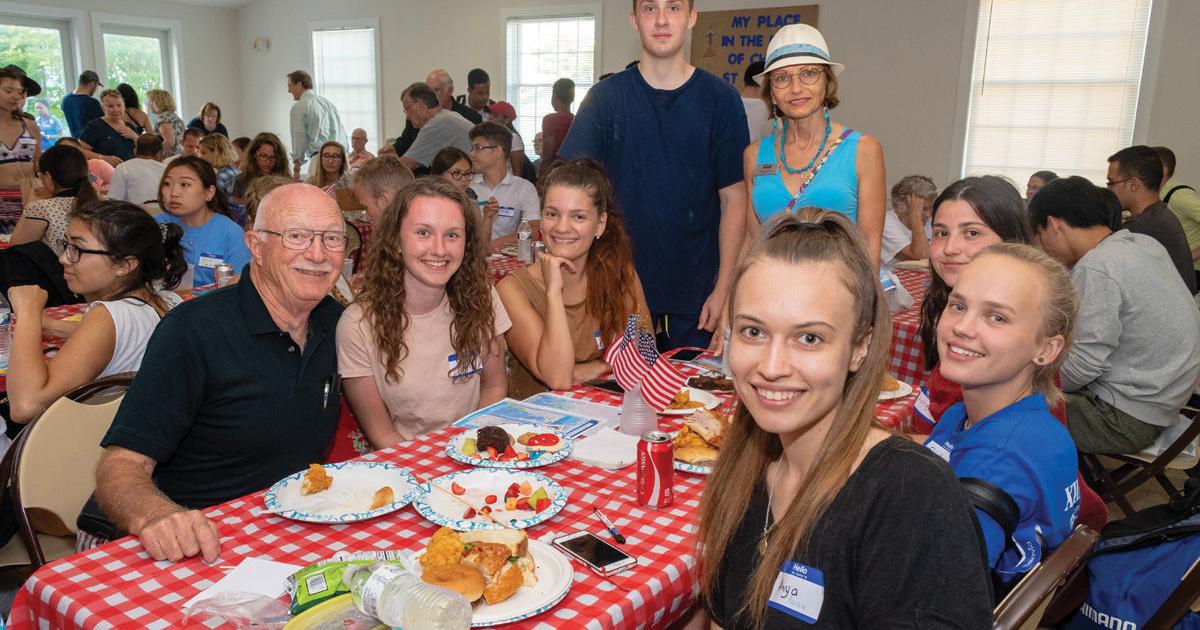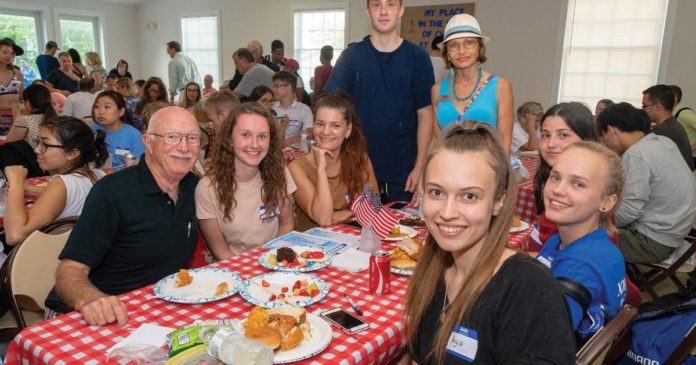
Though coastal businesses are beginning to return to normal summer operations post-pandemic, there is a significant hurdle for the international student-workers who often help keep those businesses running: affordable workforce housing.
Many local businesses rely on the help from the foreign university students, who work in the area as part of the experiential work-travel program BridgeUSA, coordinated through the Department of State. Students who are interested apply for a J-1 visa, which allows them to work and travel in the U.S. for up to four months during their summer break.
One of the requirements of the program is for students to find housing within 4 miles of their place of employment — a stipulation Bethany-Fenwick Chamber of Commerce Executive Director Lauren Weaver says has become increasingly difficult to meet.
“There’s no affordable housing,” Weaver said. “There’s no short-term rentals that are affordable, by any stretch of the imagination, for somebody who’s coming in and either working at the hotels or scooping ice cream at our vacation spots or cleaning companies or retail. They’re not going to make enough to cover the costs of summer rentals.”
A program overview slideshow for the summer of 2022 lists housing challenges as some of the dominant issues that participants face while participating in the program. Those listed include housing disputes, housing conditions, distance from the workplace, costs and the number of occupants.
Within the program, there are “sponsors” who help coordinate with students and employers in the area, meet requirements and regulations, and ensure the wellbeing of students in the program. One responsibility of sponsors is to ensure suitable affordable housing for participating students. Delaware currently has 38 work-travel sponsors.
One local sponsor echoed concerns about the difficulty of the task of finding housing, saying that the burden of locating and providing housing is increasingly falling on host employers. They also recounted that sometimes students will not be placed in the program if they cannot find housing.
“To try to get somebody to do a short-term lease just for the season is difficult and challenging. So, you know, sometimes, employers have to rent year-round and then you really only use it in the summer whenever they have students. So, we are relying more heavily on employers to help us out with housing.”
However, businesses relying on help from J-1 employees were already left hanging during the pandemic, when travel was tightly restricted, in addition to the Trump administration’s restriction of visa approvals, as noted in a previous Coastal Point article (“Lack of J-1 visas leaves local businesses scrambling for help,” July 2, 2020).
Though more J-1 participants have returned this summer, their numbers have still not returned to pre-pandemic levels.
This year, 119 J-1 students are working in Bethany, which Weaver estimated to be a third of the usual number. Rehoboth Beach has 394 J-1 students of the 1,600 Weaver says the city typically seeks. Ocean View, Millville and Fenwick have 28, 18 and 61 workers this year, respectively.
Weaver cited housing costs as one of the main reasons both students and employers stray from the program.
“That’s why you’ll see that a lot of people have either gone away from the program or they get here and they’ve — you know, they jumped ship, they go to a different business. So, you’ll see some people don’t use them, the J-1s, anymore. A lot of that just was really just the housing market and the expense,” Weaver said.
Some local employers, however, have taken an active role in providing housing for their employees. Tim Haley, owner of Blue Crab restaurant in Bethany, currently has 22 J-1 employees for whom he helps find housing in the area.
“I make sure I get housing,” Haley said. “And it was a challenge this year more than ever, but I did find housing.”
Through community connections and relationships, Haley works to make sure his employees have affordable housing options while working in the area. Though he described this year as being particularly difficult, Haley said he was willing to do what it takes to help the employees.
Eric Efergan, owner of the new Sweetiez candy shop and the Tropicana T-shirt shop, said he also rents housing for the foreign students he relies on to help run his businesses.
Bill Gay, coordinator for the yearly picnic put on by St. Martha’s Episcopal Church to welcome J-1 student-workers to the community, said those who help with the event also attempt to aid students with housing and to ensure safe and fair living conditions.
The J-1’s “are the best of the best,” Gay said. “They’re the ones with the courage to leave their countries and come and try the American dream. So, they’re the people we’d love to see come back and, you know, just come to America and be American citizens.”








